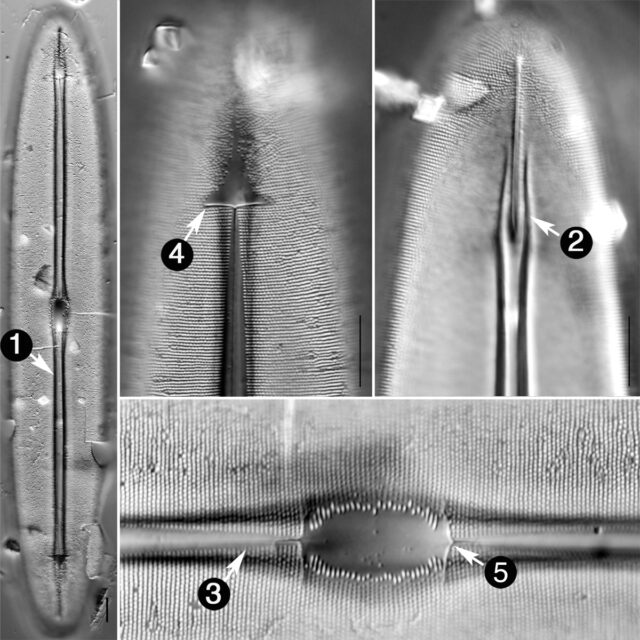Guide to Frickea

Credit: Carrie Graeff
- Distinct longitudinal ribs present
- Ribs extend to the helictoglossa, but do not fuse
- Rows of areolae present between ribs and raphe
- Large, T-shaped distal raphe fissures
- Large, T-shaped proximal raphe fissures
Species within Frickea have valves that are linear-lanceolate with bluntly rounded apices. The striae are comprised of relatively small, round areolae. Internally, a set of longitudinal ribs encloses the full length of the raphe and is continuous through the center of the valve. The longitudinal ribs extend to a linear helictoglossa but do not fuse. Near the apices and central area, the areolae extend across the longitudinal ribs and open internally adjacent to the raphe. Both proximal and distal raphe fissures branch into large T-shapes.
Reports of Frickea from North America are from the eastern, south eastern, and mid-Atlantic states. Species within Frickea are typically found in brackish habitats. They are commonly found in the benthos of estuaries and the mud flats of large rivers.
 Diatoms of North America
Diatoms of North America